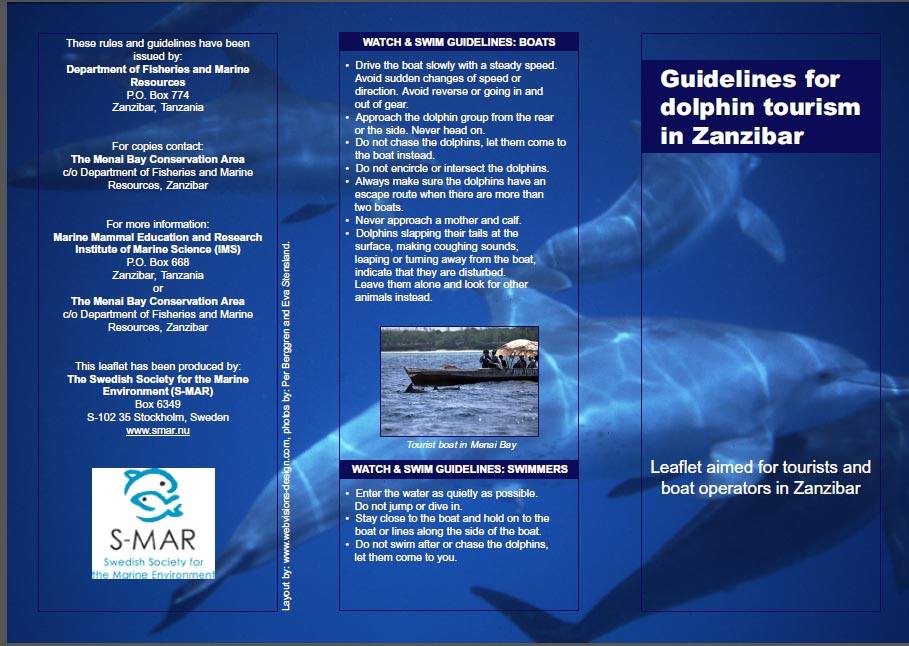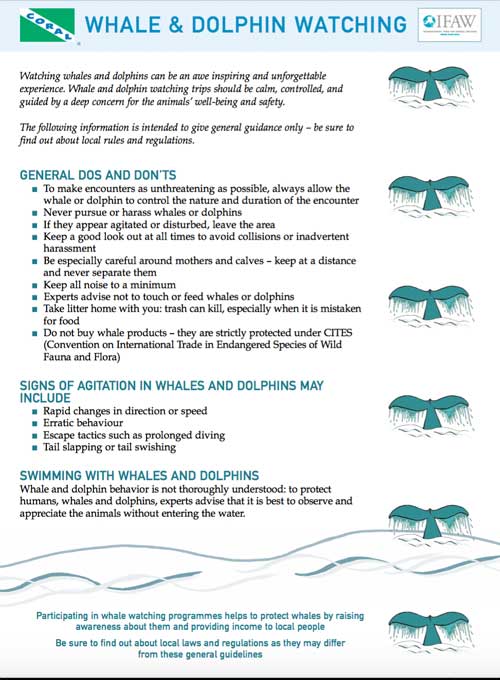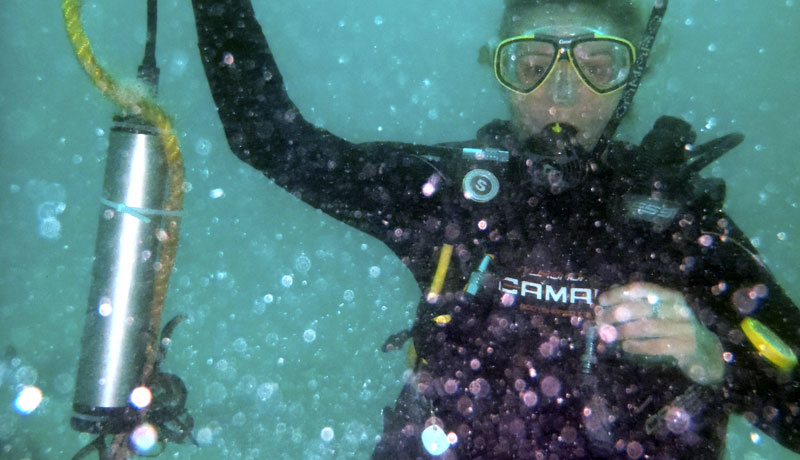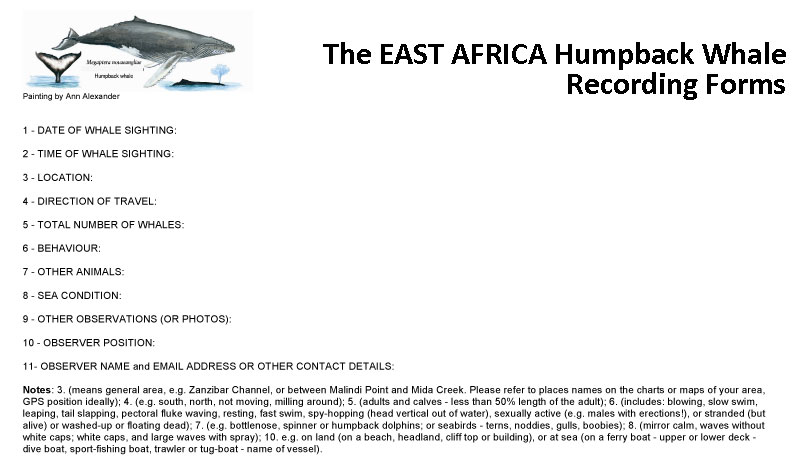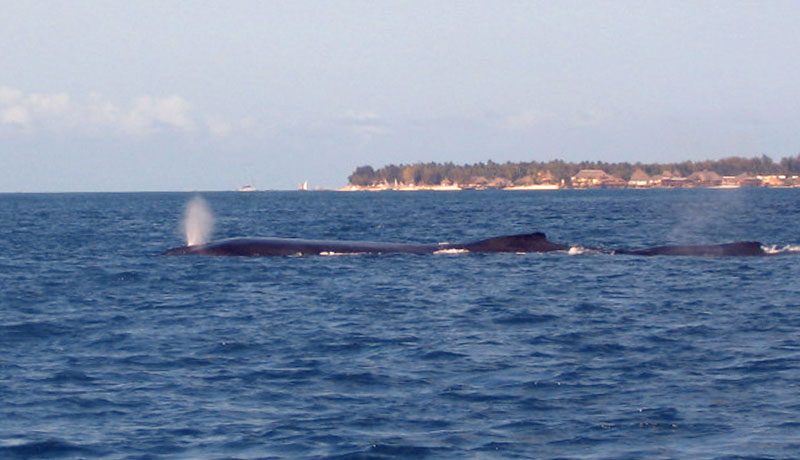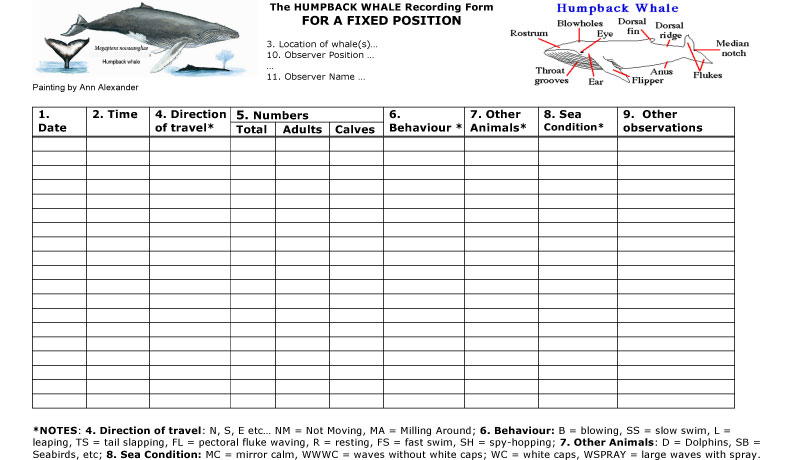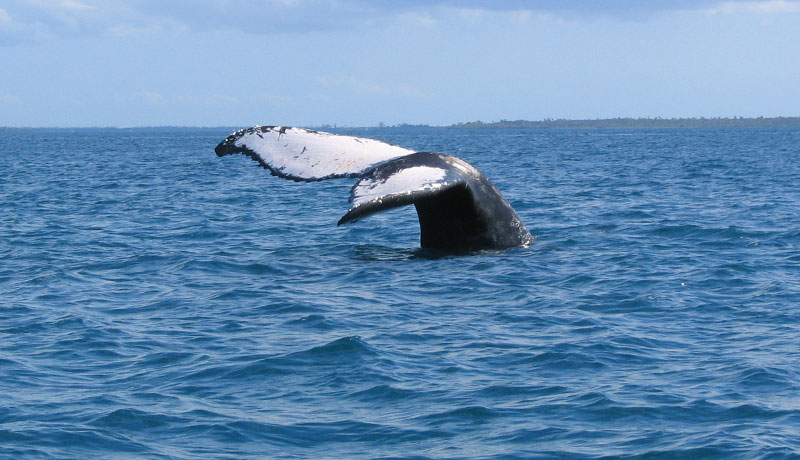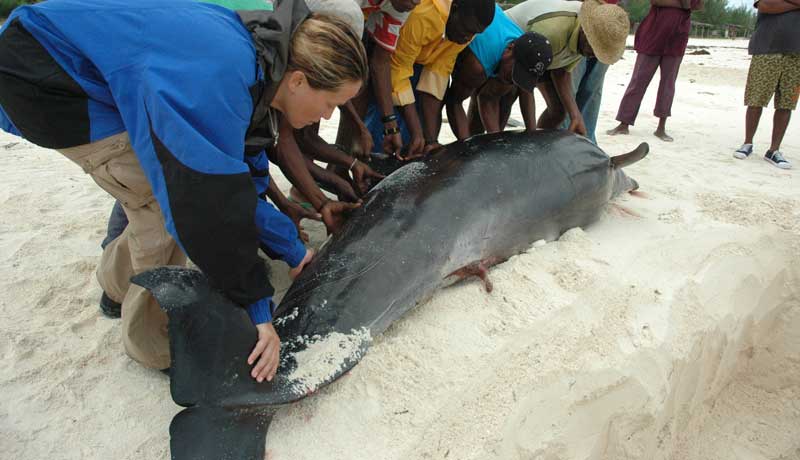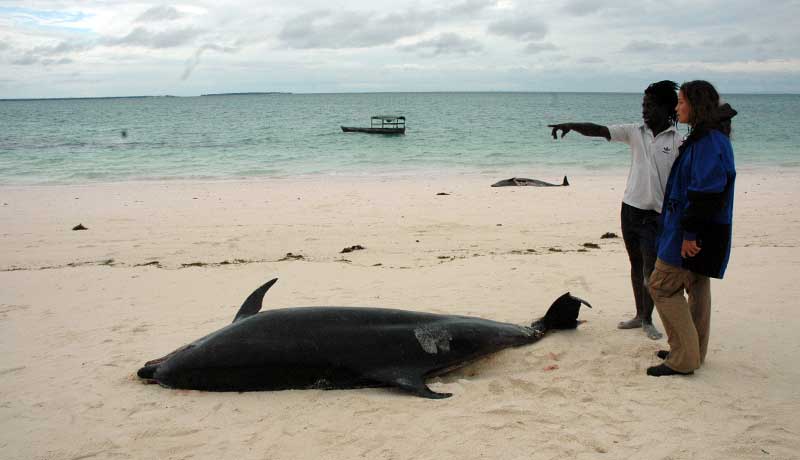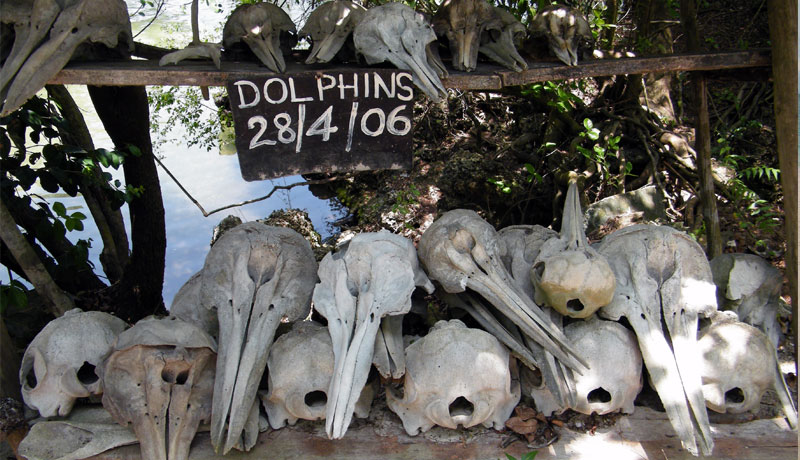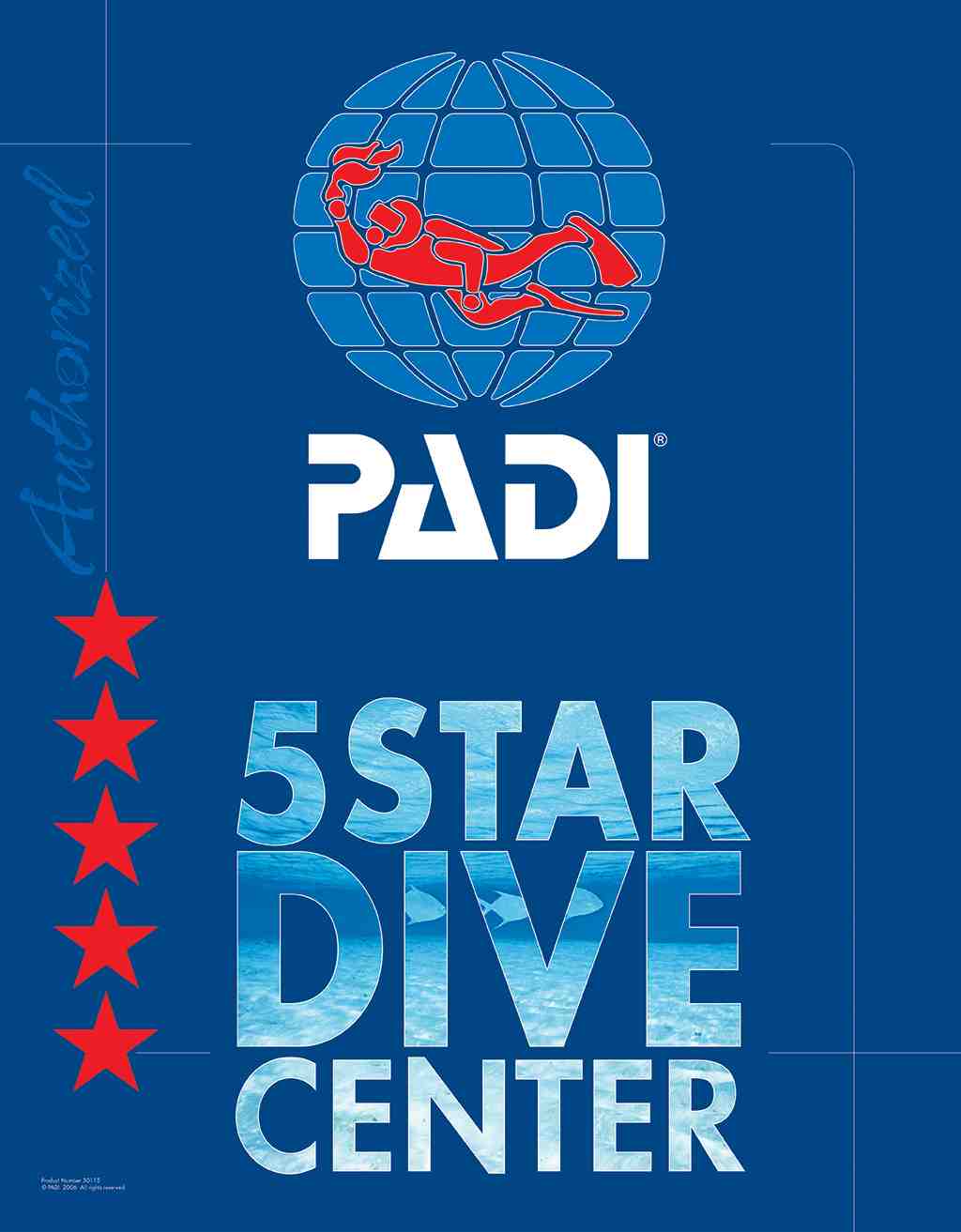During the humpback whale migration season 2016, we assisted marine mammal expert, Dr. Gill Braulik, and Wildlife Conservation Society Tanzania with deploying a hydrophone off the Northern tip of Zanzibar (Unguja Island) to listen for the marine mammals. The hydrophone was fixed at a depth of nearly 30m where it would not be disturbed by tourism or fisheries activities. Every six weeks, we found the hydrophone and swapped it out with another with fully charged batteries and then retrieved the hydrophone at the end of the migration season.
Protecting Dolphins & Whales
Reporting Humpback Whale Sightings
In 2008, the Humpback Whale Network was formed to encourage residents and visitors to the coast of East Africa to report humpback whale sightings. The records of sightings received from Kenya, Tanzania and Mozambique contribute to a greater understanding of their migration routes and patterns, behaviours, population abundance and threats.
Assisting BBC Filming of Wildest Dreams
In March 2009, several Scuba Do Zanzibar crew were rescue divers supporting the BBC Natural History Unit together with BBC Entertainment Unit in the filming of BBC Wildest Dreams: Episode Four. In the video clip above, Tooni Mahto - a marine biologist, oceanographer and campaigner shares a small clip on what not to do, along with some of the footage from the filming of Zanzibar's dolphins. During the filming, BBC experts from the Natural History Unit were quite shocked by the behaviours of many toursim boats harrassing the dolphins. To read more, have a look at the BBC News article below which is based on Zanzibar's Dolphin Tourism in Kizimkazi.
Zanzibar Dolphin Stranding
A very sad day, 28th April 2006 we received a call at daybreak informing us that dead dolphins were washing up on Kendwa beach. It was a tragic site to see these large marine mammals scattered along the beach and floating in the shallow waters. We checked the ones in the shallow water and there were no signs of life. We immediately informed our colleagues in the Department of Fisheries and walked up and down the beach photographing the dolphins looking for any signs which might show the cause of death. We assisted our experts from the Institute of Marine Sciences in collecting specimens from the dead dolphins. The dolphins were not the dolphins which we normally see here in Zanzibar and there was never a conclusive cause of death for the estimated 500-600 dolphins died.

